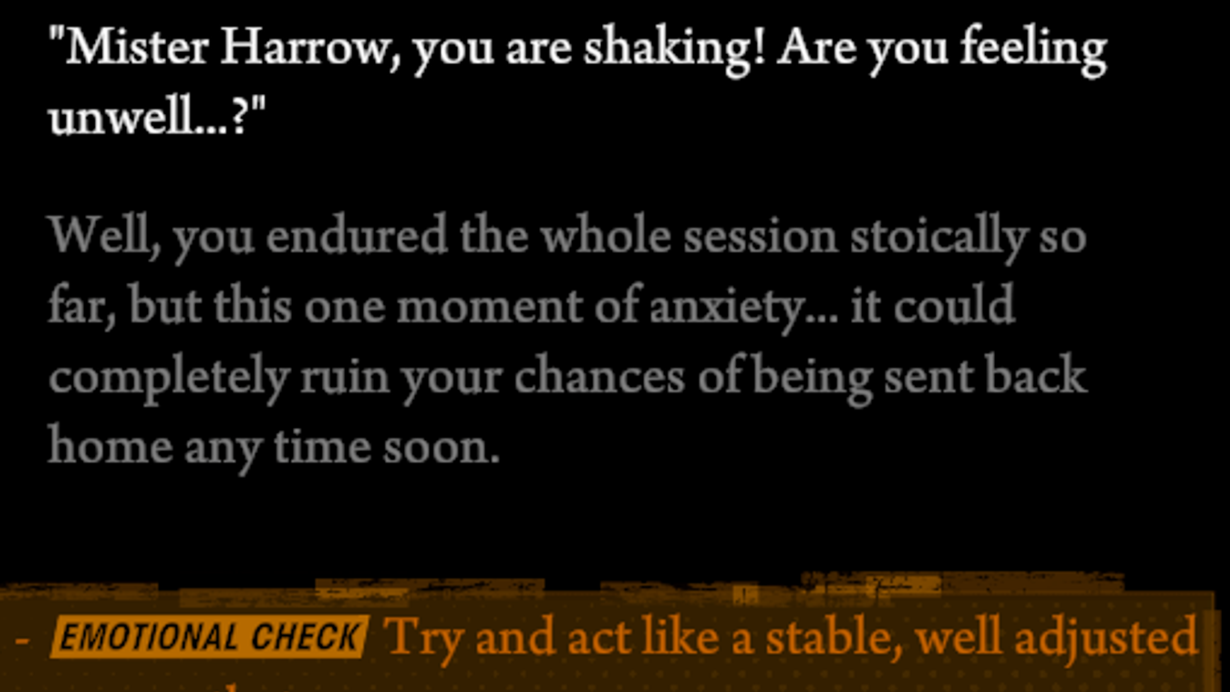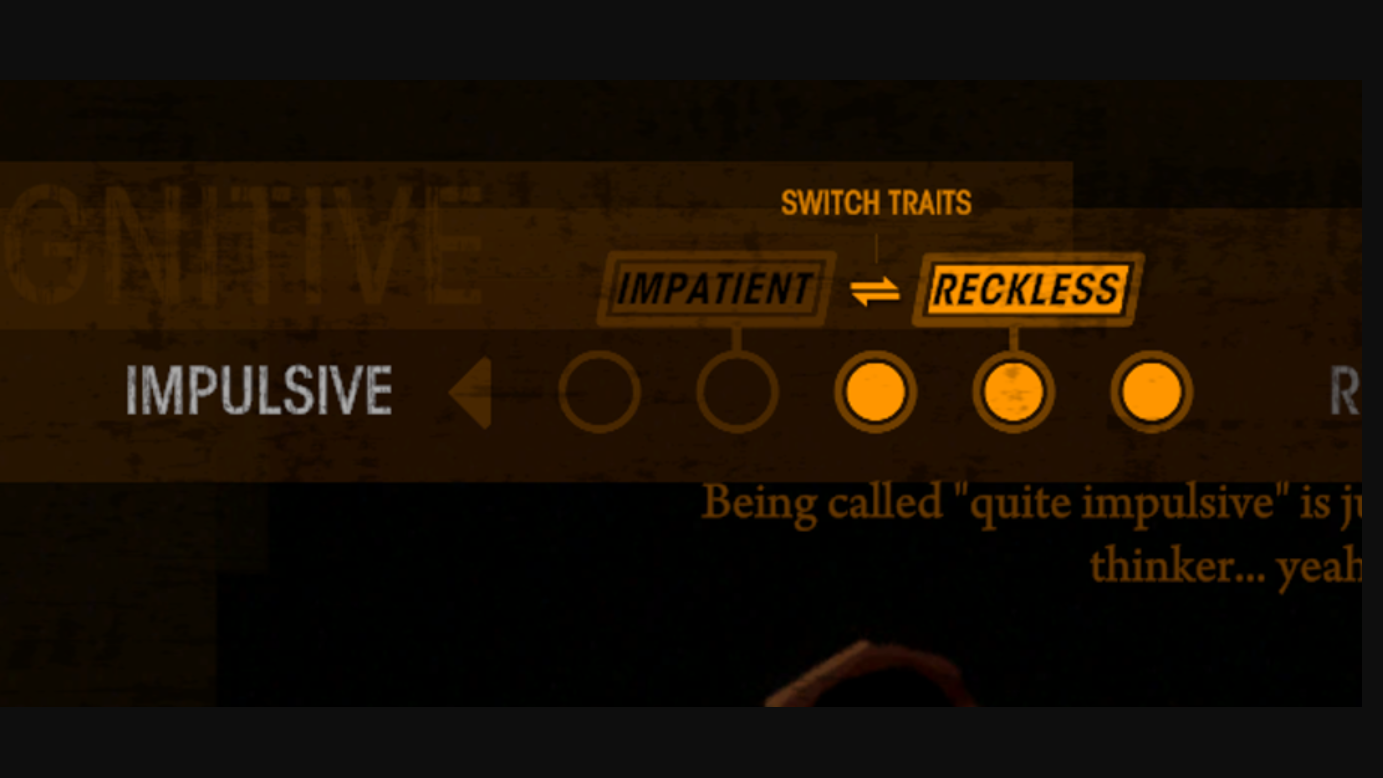Rue Valley’s personality system isn’t a min-max puzzle; it’s the backbone of how your character thinks, speaks, and refuses. The nine points you assign at the start define which dialogue branches even exist for you, and the traits you unlock will sometimes close off other responses by design. That’s the point: the game wants a defined person, not a jack‑of‑all‑stats.
How personality points map to traits (and why some options vanish)
You start with nine personality points and three axes, each with two opposing sides:
- Impulsive ↔ Calculated
- Introverted ↔ Extraverted
- Emotional ↔ Indifferent
Each side has two traits (12 total). Investing points along an axis unlocks “trait slots” at specific thresholds. Traits grant unique dialogue lines and reactions, and they can lock you out of opposing options. That lockout isn’t a penalty — it’s how the game commits to your role.
Important rhythms to expect:
- Two points in a side unlock its first trait slot; four points unlock the second.
- Deeper investment makes your reactions more extreme on that axis. Pushing hard into Calculated, for example, skews conversations toward suspicion and risk‑avoidance.
- You will fail some personality checks and lose access to some dialogue. The story still moves forward.

Switching traits during creation (what it does and what it doesn’t)
On the character screen, you can “switch” which trait sits in an unlocked slot. This doesn’t refund or add points; it changes which trait you take at that slot’s threshold.
- If you have two points in Calculated, the first slot opens. By default this might be Paranoid. Switching lets you place Indecisive in that first slot instead.
- That means you can access a trait that usually sits at four points with only two — because you’re swapping trait order, not bypassing the slot system.
- Switching is only available during character creation. Once the playthrough starts, trait selection is locked.
Think of it this way: you unlock a slot with points, then decide which of that side’s traits you want occupying the slot. You are not unlocking individual traits outright.
All Rue Valley traits and their effects
| Trait | Axis side | What it changes |
|---|---|---|
| Reckless | Impulsive | Enables reckless dialogue; may lock some calculated options. |
| Impatient | Impulsive | Enables impatient dialogue; may lock some calculated options. |
| Paranoid | Calculated | Enables paranoid dialogue; may lock some impulsive options. |
| Indecisive | Calculated | Enables indecisive dialogue; may lock some impulsive options. |
| Secretive | Introverted | Enables secretive dialogue; may lock some extraverted options. |
| Awkward | Introverted | Enables awkward dialogue; may lock some extraverted options. |
| Nosy | Extraverted | Enables nosy dialogue; may lock some introverted options. |
| Arrogant | Extraverted | Enables arrogant dialogue; may lock some introverted options. |
| Guilt‑Ridden | Emotional | Enables guilt‑driven dialogue; may lock some indifferent options. |
| Dramatic | Emotional | Enables dramatic dialogue; may lock some indifferent options. |
| Flat | Indifferent | Enables flat, detached dialogue; may lock some emotional options. |
| Unkind | Indifferent | Enables unkind dialogue; may lock some emotional options. |
There’s no “best build” (and you can finish the game with any)
Every combination trades access in one area for access in another. You’ll miss some lines, gain others, and encounter checks crafted for who you are. The campaign is fully completable regardless of what you pick; failing checks is baked into how scenes route and how the mystery unfolds.
Permanence, respec, and how status effects shake things up
Once you confirm your personality, it’s locked for the whole run. There’s no respec, and you can’t switch traits after the game begins. You also won’t earn additional personality points beyond the starting nine.
That said, temporary status effects can add or subtract points along an axis. When that happens, traits tied to those thresholds can be temporarily locked or unlocked. These changes last only as long as the status persists. Remove the status effect, and your original profile snaps back into place.
Practical guidance for spending your nine points
- Decide which axes you want to define your voice. If you crave confrontational options, lean into Extraverted or Indifferent; if you prefer guarded routes, invest in Introverted or Calculated.
- Use switching to grab a specific trait earlier. If you want Indecisive without going four points deep into Calculated, swap it into the first slot and save points for another axis.
- Avoid maxing an axis by accident. Four points on one side is a strong commitment; it can be the right choice, but it will narrow your tone and reactions around that axis.

Quick answers
| Question | Answer |
|---|---|
| Can you earn more personality points later? | No. You start and end with nine. Only temporary status effects shift points. |
| Can you respec or switch traits mid‑run? | No. Switching is only available during character creation. |
| Do more points on a side do anything beyond traits? | Yes. Higher investment amplifies how strongly you react and which lines appear. |
| Are some traits objectively better? | No. They’re trade‑offs that open some routes and close others. |
The simplest way to enjoy Rue Valley is to build the person you want to inhabit and accept the doors that shut along the way. Use switching to target a few must‑have traits, spread at least one pick across each axis, and let the game meet you on those terms. The loop holds either way.

